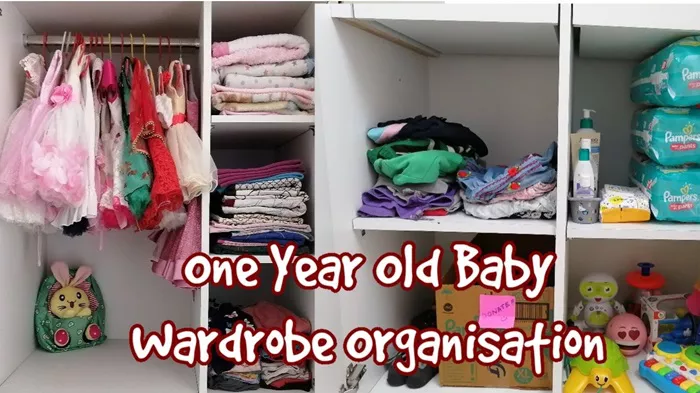Welcoming a new baby into your life is a joyful experience, and dressing them can be equally exciting! However, the world of baby fashion can feel overwhelming for new parents. This article simplifies the process, providing essential tips on newborn wardrobe basics to help you make informed choices.
Understanding Newborn Clothing Needs
Comfort is Key
Newborns have sensitive skin and need clothing that is soft and breathable. Choose fabrics like cotton or bamboo, which are gentle against their delicate skin. Avoid harsh materials that can cause irritation or discomfort.
Functionality Matters
Babies have frequent diaper changes, so opt for clothes that are easy to put on and take off. Look for garments with front openings, snaps, or zippers. Outfits that allow quick changes can save you time and stress.
Essential Newborn Clothing Items
1. Onesies
Onesies are a staple in any newborn’s wardrobe. They are versatile, comfortable, and easy to layer. Look for:
Short-sleeve and long-sleeve options: These allow you to adapt to different weather conditions.
Envelope necklines: This design makes it easier to dress your baby without pulling fabric over their head.
2. Sleepers
Sleepers, also known as pajamas, are essential for bedtime. Choose:
Footed sleepers: These keep your baby warm and eliminate the need for socks.
Zippered options: They make diaper changes during the night quicker and easier.
3. Swaddles
Swaddling helps newborns feel secure and comfortable. Look for:
Stretchy fabrics: These allow for movement while keeping your baby snug.
Easy-to-use designs: Some swaddles come with Velcro or snaps, simplifying the swaddling process.
4. Hats
A soft hat can help regulate your baby’s body temperature. When selecting hats, consider:
Breathable materials: Cotton or lightweight fabrics are ideal.
Size and fit: Ensure the hat fits snugly but isn’t too tight.
5. Mittens
Mittens prevent babies from scratching their faces. Choose:
Soft, elasticized options: These stay on better and are gentle on their skin.
Easy-to-wash fabrics: Since babies can be messy, look for mittens that are machine washable.
6. Socks and Booties
Keep those tiny toes warm with socks or booties. Look for:
Non-slip soles: As your baby starts to move, these can help prevent slips.
Soft, stretchy materials: Ensure they are comfortable and won’t leave marks on your baby’s skin.
Choosing the Right Size
Understand Newborn Sizing
Newborn clothing sizes can be confusing. Here’s a quick guide:
Newborn (NB): Fits babies up to 7.5 lbs (3.4 kg).
0-3 months: Fits babies from 7.5 lbs (3.4 kg) to 12 lbs (5.4 kg).
3-6 months: Fits babies from 12 lbs (5.4 kg) to 16 lbs (7.3 kg).
Buy a Few Sizes
Babies grow quickly, so it’s wise to buy clothes in multiple sizes. This ensures your baby will have something to wear as they grow.
Color and Style Choices
Bright Colors and Patterns
While newborns often don’t care about fashion, bright colors and fun patterns can brighten your day! Consider:
Gender-neutral colors: Greens, yellows, and whites can work for any baby.
Fun prints: Animals, stars, or stripes can add personality to your baby’s wardrobe.
Classic and Timeless Styles
Classic styles are easy to mix and match. Think about:
Solid colors: These are versatile and can be paired with any accessory.
Simple designs: Avoid overly complicated outfits that might be uncomfortable.
Dressing Your Newborn
Layering for Comfort
Layering is essential for keeping your baby comfortable. Consider:
Base layers: Start with a onesie as the base layer.
Add layers: Use sleepers or lightweight cardigans for added warmth.
Seasonal Considerations
Dress your newborn according to the weather. Here are some tips for different seasons:
Spring and Fall: Use light layers that can be added or removed as needed.
Summer: Choose breathable fabrics and lightweight clothing to prevent overheating.
Winter: Invest in warm sleepers and consider outer layers like jackets or blankets when going outside.
Caring for Your Baby’s Clothes
Washing Instructions
Newborn clothes can get dirty quickly. Here are some tips for caring for them:
Gentle detergent: Use a mild, fragrance-free detergent to avoid skin irritation.
Wash separately: To prevent contamination, wash newborn clothes separately from adult clothes.
Avoid fabric softeners: These can irritate sensitive skin.
Storing Clothes
Proper storage keeps clothes in good condition. Consider:
Organizing by size: This makes it easier to find what you need as your baby grows.
Using storage bins: Protect clothes from dust and potential stains.
See Also: Baby Wraps: Easy On, Easy Off Swimwear For Active Infants
Practical Tips for Shopping
Buy in Batches
Purchasing baby clothes in batches can save time and money. Look for:
Sales and discounts: Take advantage of sales events to stock up on essentials.
Bundle deals: Some retailers offer bundle deals that can be more economical.
Consider Second-Hand Options
Don’t overlook second-hand clothing. Here’s why:
Cost-effective: You can find high-quality items at a fraction of the price.
Environmentally friendly: Buying second-hand helps reduce waste.
Avoiding Common Pitfalls
Overbuying
It’s tempting to buy too many clothes, but keep in mind:
Growth spurts: Babies grow quickly, and many outfits may only be worn a few times.
Practicality: Focus on essential items that can be mixed and matched.
Ignoring Comfort
Always prioritize comfort over style. Remember:
Soft fabrics: Choose gentle materials that won’t irritate your baby’s skin.
Fit: Ensure clothes aren’t too tight or restrictive.
Conclusion
Building a newborn’s wardrobe can be a delightful journey when you keep it simple and focus on comfort and practicality. By following these style tips and understanding your baby’s needs, you can create a wardrobe that is both functional and stylish. Enjoy dressing your little one and cherish these precious moments as they grow!
Related topics:
- How Long Do Newborns Wear Size 1 Diapers?
- How Long Do Newborns Wear Mittens?
- Newborn Sleepwear 101: Best Options For A Good Night’s Sleep

